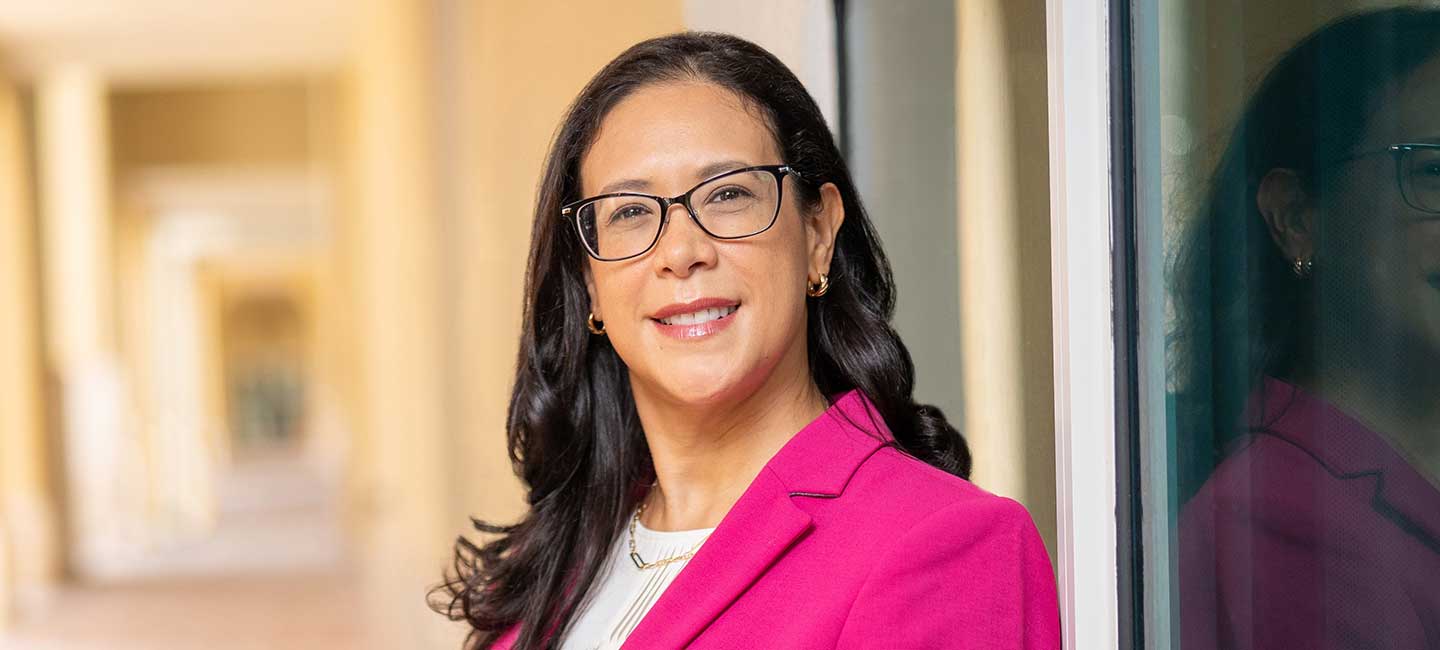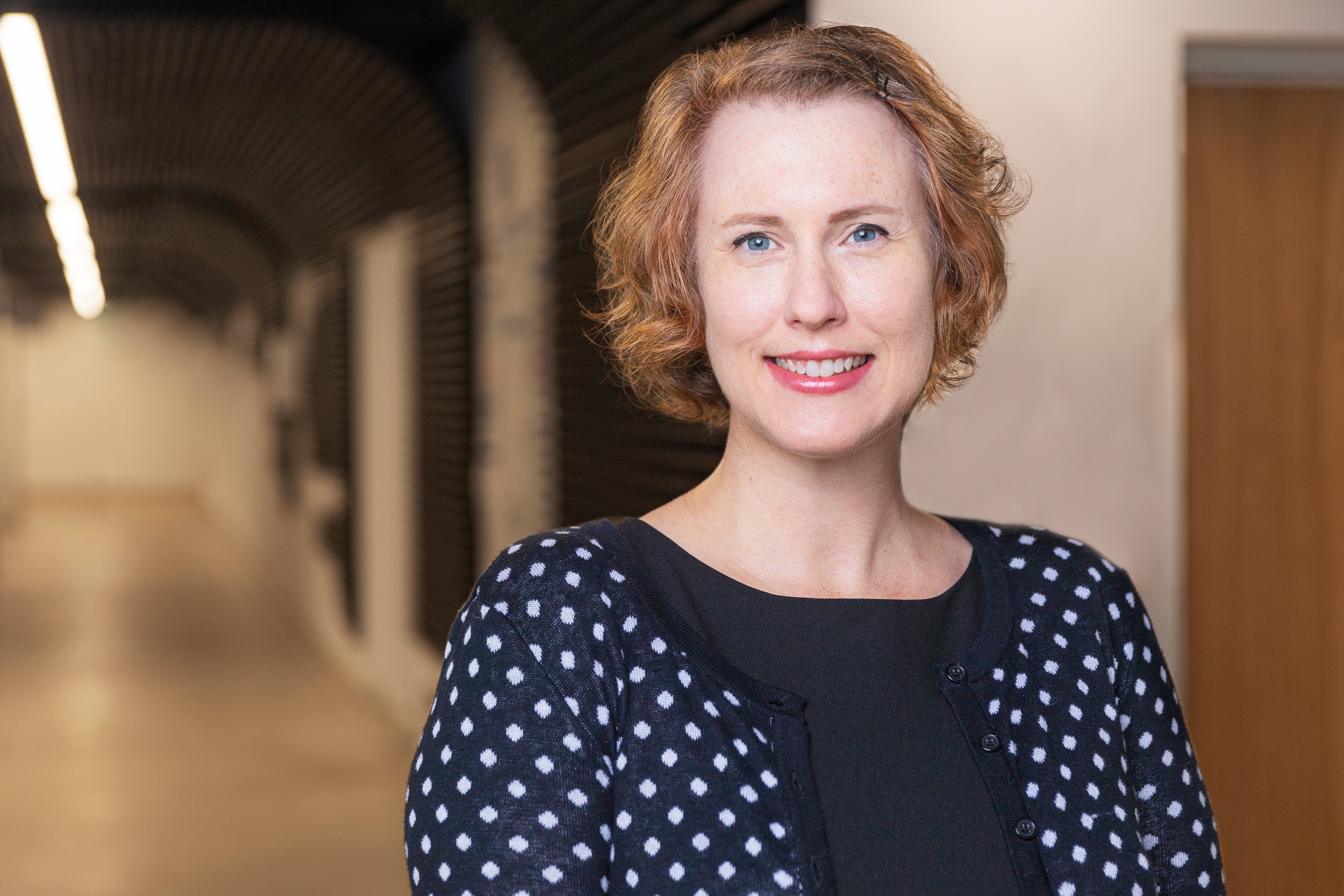Fast-Paced Research in Field Keeps Hematologist Hopeful for a Cure
SPECIAL SERIES: WOMEN IN ONCOLOGY
Women faculty at Moffitt Cancer Center come from different backgrounds and cultures around the globe. Their areas of research and clinical care span the entire cancer continuum, including clinical science and trials, basic science, epidemiology, health outcomes, medical physics and more. Community involvement, mentorship and inclusion among faculty are foundational, and we celebrate the essential roles women play in making a difference at the cancer center and in society.
Meet Claudia Paba Prada, MD
Claudia Paba Prada, MD, is an oncologist/hematologist with Moffitt Malignant Hematology and Cellular Therapy at Memorial Healthcare System. She earned her medical degree from Universidad Industrial de Santander in Bucaramanga, Colombia, and completed an internal medicine residency at Pennsylvania Hospital in Philadelphia. She completed a hematology/oncology fellowship at The University of Tennessee Health Science Center in Memphis and an advanced fellowship in hematologic malignancies at Dana-Farber Cancer Institute in Boston. Paba Prada was an attending physician in both the Department of Medical Oncology at Brigham and Women’s Hospital and the Department of Hematologic Malignancies at Dana-Farber Cancer Institute and a clinical instructor at Harvard Medical School. Before joining Moffitt in 2020, she was also a clinical physician in the Department of Hematologic Malignancies at Miami Cancer Institute. Paba Prada has a clinical interest in the management of plasma cell disorders, including monoclonal gammopathy of unknown significance, multiple myeloma, AL amyloidosis, POEMS syndrome and Waldenstrom’s macroglobulinemia.
What made you want to go into medicine as a career?
I chose a career in malignant hematology as this is an exciting, rapidly evolving field with breakthroughs being achieved at an almost daily rate. This is due to groundbreaking clinical research that investigates new methods to improve treatment outcomes while ensuring that patients receive the best care possible.
Did you almost go into another field?
Early in medical school, I was interested in malignant hematology as I have always thought of it to be incredibly fascinating. I was initially interested in pursuing a career in hematopathology. After completing medical school in Colombia, I moved to the United States to validate my medical degree and continue with my post-graduate training. During this transition, I had the opportunity to work in a hematopathology laboratory and rotated through the different pathology departments at the University of Pennsylvania. While it proved to be an amazing learning experience, I found myself longing for the direct interaction and connection with my patients. This realization helped me to decide to pursue a career in medicine and clinical hematology oncology.
What is one of the biggest challenges in your field?
Implementation of new sophisticated therapeutic modalities such as CAR T-cell therapy into routine clinical practice remains a challenge due to multiple factors, including the complex manufacturing process, the need for highly specialized cancer centers to manage these patients, and the high cost and government regulations. Despite promising response rates in trials, the availability and equal access of these treatments continues to be limited.
What do you see as the future of cancer care?
Cancer care has advanced at an amazing pace in recent years! New insights into the biology of tumors, genetic engineering and sequencing, and tumor microenvironments have led to the development of new targeted treatments including exciting immunotherapies and cellular therapies. These advances have led to improved treatment outcomes and have translated into longer time to disease progression and survival. Ongoing research to improve cancer treatments provides hope that soon we may be able to achieve a cure.
What do you see as the future of cancer screening and prevention efforts?
I think cancer prevention and screening has a crucial role in improving cancer-related mortality. Most cancers can be cured if they are diagnosed at their earliest stages, and when there is a delay in diagnosis or therapy, the chance of survival drops significantly. Early diagnosis is also critical in reducing morbidity and disability not only related to the malignancy itself but also to treatment-related side effects. We must implement cancer prevention strategies such as colonoscopy, mammography, and vaccinations against infection-related cancers like HPV and hepatitis B more effectively. We also need to emphasize the importance of lifestyle changes and avoidance of exposures to known carcinogens early in life. There is also a significant need for the development of new strategies for prevention and screening of many other cancers and premalignant conditions.
What comes to mind when you hear the term “Superwoman Syndrome”?
To me, it represents a woman who strives to be all conquering. Whether it’s fulfilling all the responsibilities of her career, being ever present in her home and family life, or finding the time to simply enjoy life.
Have you experienced the pressures of Superwoman Syndrome, and how have you overcome those pressures?
Although I am passionate about what I do, I admit that sometimes I feel overwhelmed with the responsibilities of my position and the mental demands of caring for patients. Maintaining a good work-life balance is a priority so I can also be present for my family at home. I aspire to have quality time with my family, spend more time outside enjoying nature, and travel to new places to recharge and disconnect.
Who is the person who encouraged you the most in your career and how did they impact you?
I have been lucky to have several people in my life who have supported me throughout my career. My husband, who is also a physician, has been and continues to be the person who encourages me the most and helps me to overcome obstacles.
What are some of the big lessons you have taken from mentors?
I have been blessed to have amazing mentors from the Dana-Farber Cancer Institute, where I trained and was a junior faculty member. They have truly helped me become the oncologist I am today. One of the most important lessons my mentor has impressed upon me is to always try new projects or opportunities even if I feel they are out of my reach or comfort zone. This has helped me achieve my goals even when I thought they were impossible.
What advice do you wish someone had given you at the beginning of your career?
I wish I had been better prepared to weather the loss I suffered from every patient I lost at the beginning of my career. This is something I have learned with experience. Even though it can be heartbreaking, I now feel more joyful about the time I spent with my patients and feel fortunate to know that I have made a difference in their lives and that of their families.



